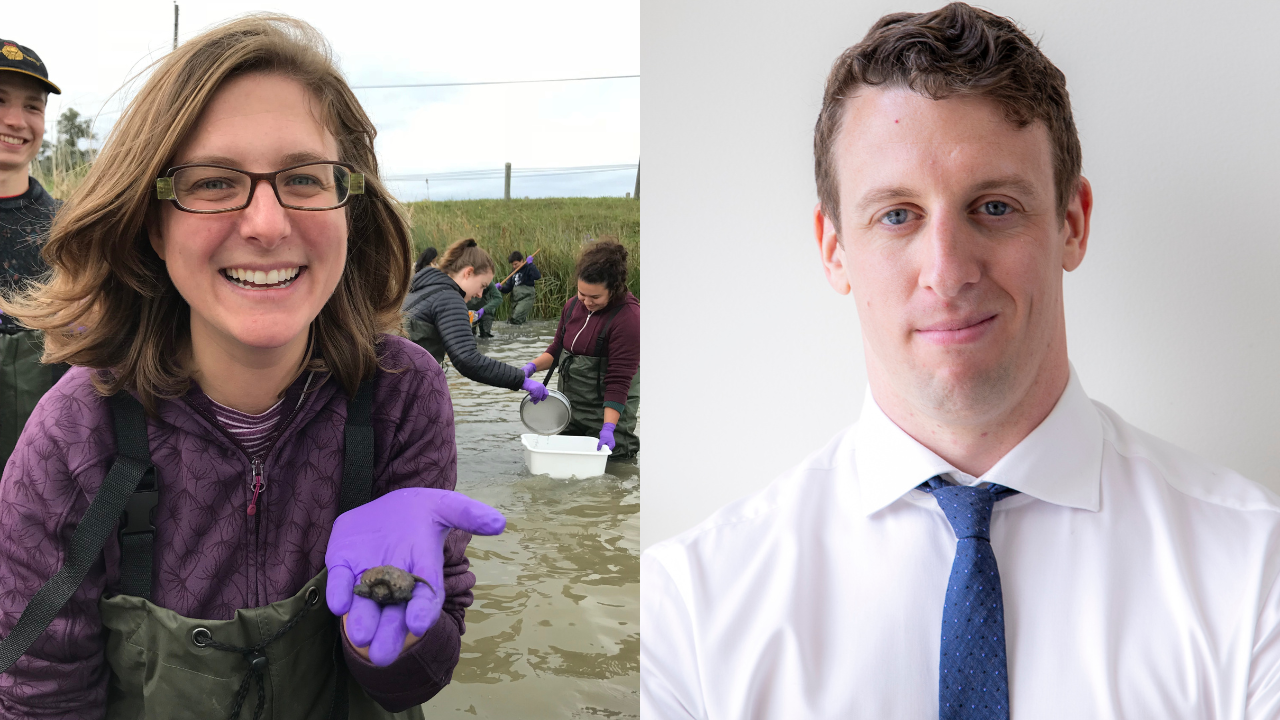Department of Chemistry’s Associate Professor Jessica D’eon’s latest publication has been chosen as the ACS Editors' Choice because of its pedagogical innovation and potential for student engagement. In this paper, she outlines how they teach undergraduate students essential data analysis skills using an in-house developed webbook and web-app.
The COVID-19 pandemic forced all university classes and labs to be held online. Jessica D’eon, an Associate Professor, Teaching Stream, in the Department of Chemistry, took on this challenge by co-creating the Air Quality Activity with David Ross Hall, a recent graduate of the PhD program in Chemistry.
Sometimes in the undergraduate laboratory, because things are so well curated for students, they end up with a false sense of security that experiments always agree with theory. A learning objective of this activity is to get students to feel comfortable with a sense of things not being exactly right and to have them sit in that grey area of uncertainty without being penalized academically
The Air Quality Activity is a virtual activity that teaches students how to analyze data using Microsoft Excel. Its defining feature is that students analyze real data collected by Environment and Climate Change Canada’s National Air Pollution Surveillance (NAPS) program. Since 1969, the program has recorded hourly measurements of several atmospheric pollutants across Canada. D’eon and Hall chose this data because of itsrelevancy, as it is used to issue air quality advisories, such as those related to the recent Canadian wildfires. It also provides a means of introducing atmospheric chemistry to students enrolled in CHM135: Chemistry: Physical Principles.
During the Air Quality Activity, students would watch a short video on atmospheric chemistry and are assigned a unique data set with hourly ozone and nitrogen dioxide measurements from a seven-day time period in Toronto. Students must analyze this data using visualizations and statistics and interpret and discuss their results in connection to the course concepts. To support students with their work, D’eon and Hall created a webbook, with Graphics Interchange Formats (GIFs) that visualize mouse-click actions to assist students with certain Excel operations, and an interactive web-app that streamlined the dissemination of data sets and allowed students to easily explore the NAPS data across Canada.

A benefit of using real data is that it is inherently unpredictable. Hence, students may encounter data that contradicts the hypothesis they built from the introductory material. “Sometimes in the undergraduate laboratory, because things are so well curated for students, they end up with a false sense of security that experiments always agree with theory,” says D’eon “A learning objective of this activity is to get students to feel comfortable with a sense of things not being exactly right and to have them sit in that grey area of uncertainty without being penalized academically”. Ultimately, the Air Quality Activity can help prepare first-year students for future academic and career research.
Feedback on anonymous surveys and the end-of-semester course evaluation suggest that students enjoy the activity and appreciate the specific instruction in data analysis and Excel. The assignment has continued as an after-lab independent activity, even with the return of in-person classes. With its success in CHM135, D’eon and Hall hope that others might incorporate it into their curriculum. To facilitate this sharing, they published an article on this activity and made both the webbook and web-app freely available. On August 11th, 2023, their publication was selected as the ACS Editors' Choice for its innovative approach to undergraduate teaching and student engagement. As a result, it will be available for open access for six months.
D’eon is a dedicated educator. She is involved in some of the University of Toronto’s largest undergraduate classes and has been involved in the development of new courses and enhancing current majors. She also regularly partakes in outreach programs to inspire high school students to pursue STEM. Her devotion to student success and pedagogical innovation has earned her the Faculty of Arts and Science’s Outstanding Teaching Award (2020) and the Department of Chemistry Chair’s Distinguished Teaching Award (2023).


